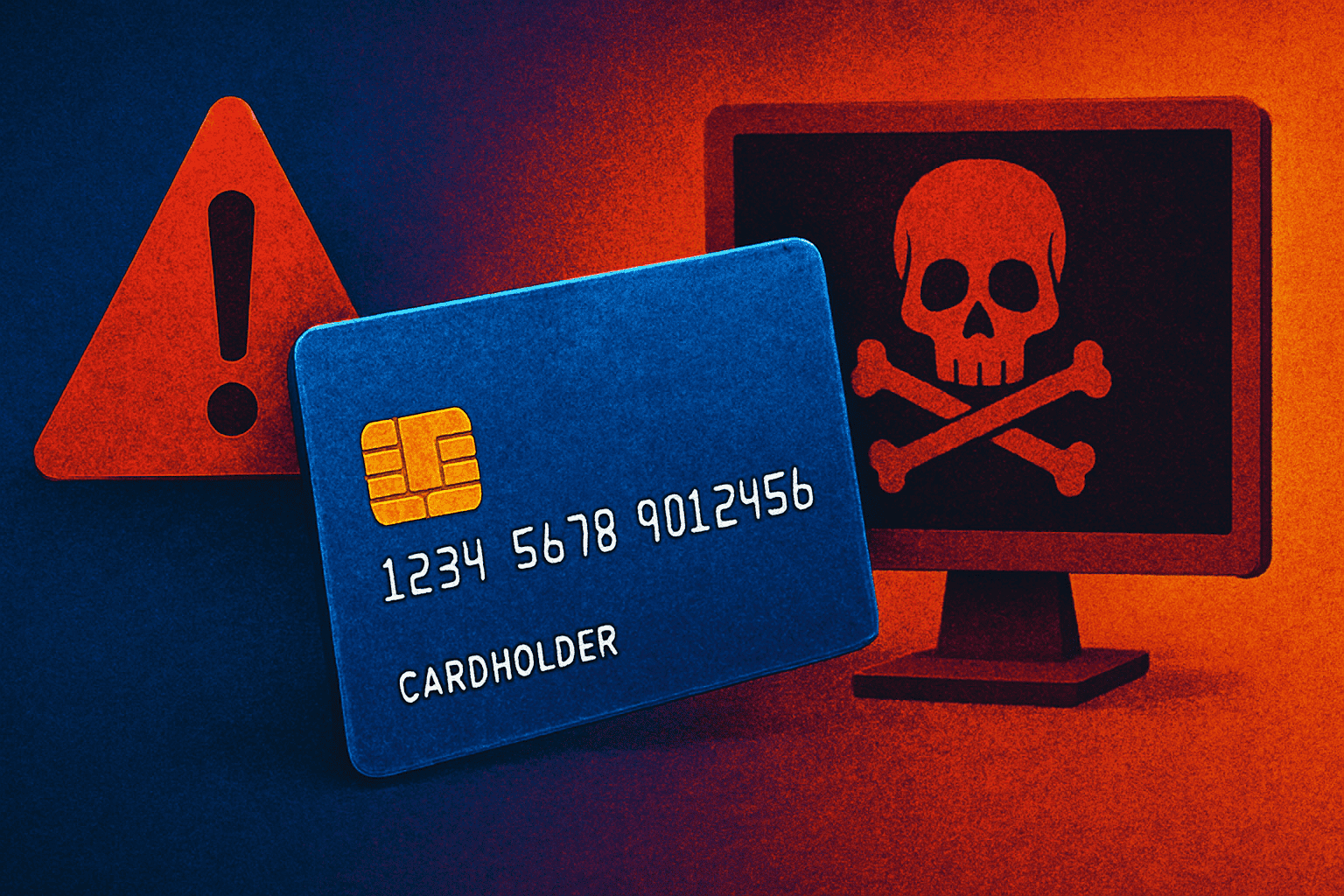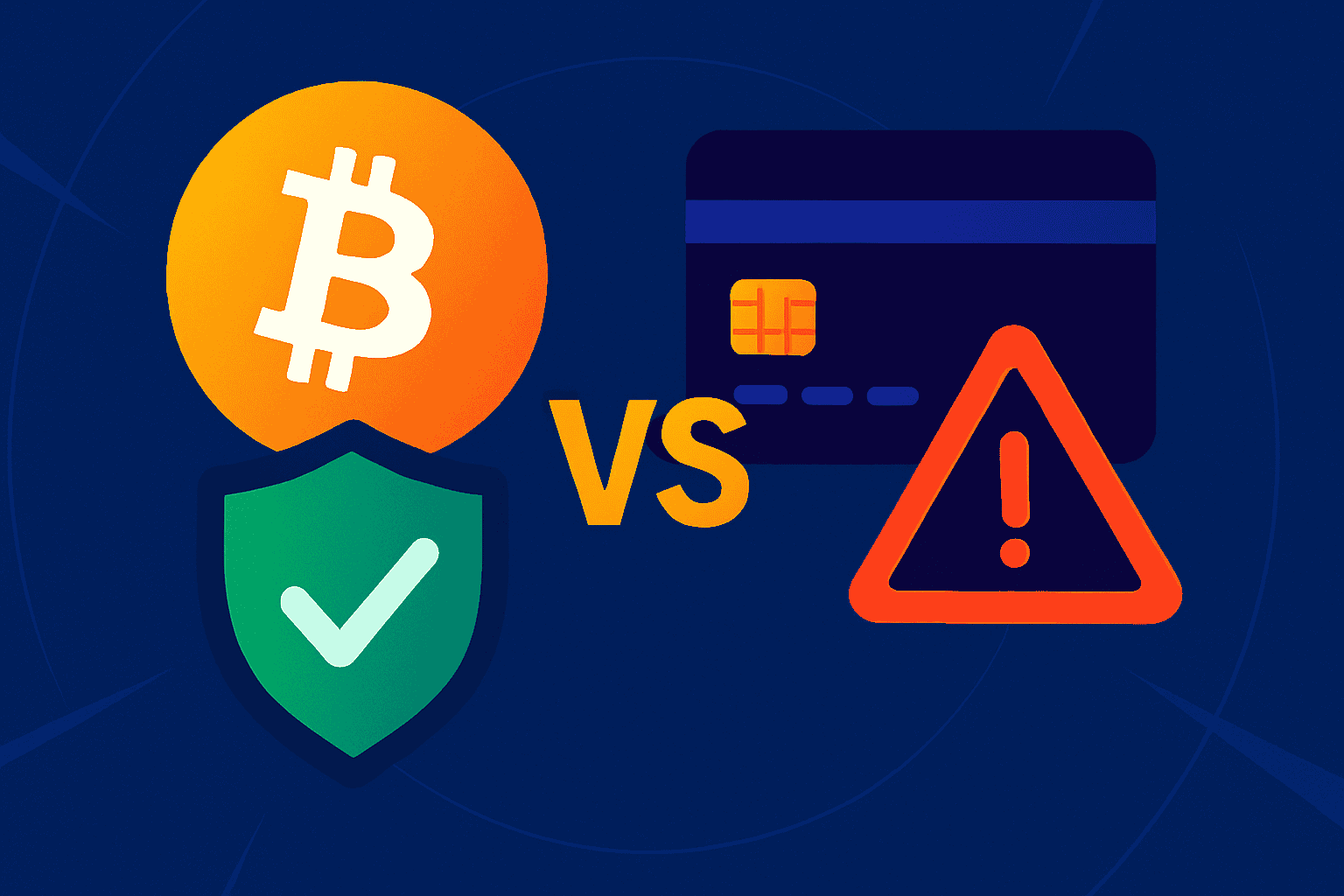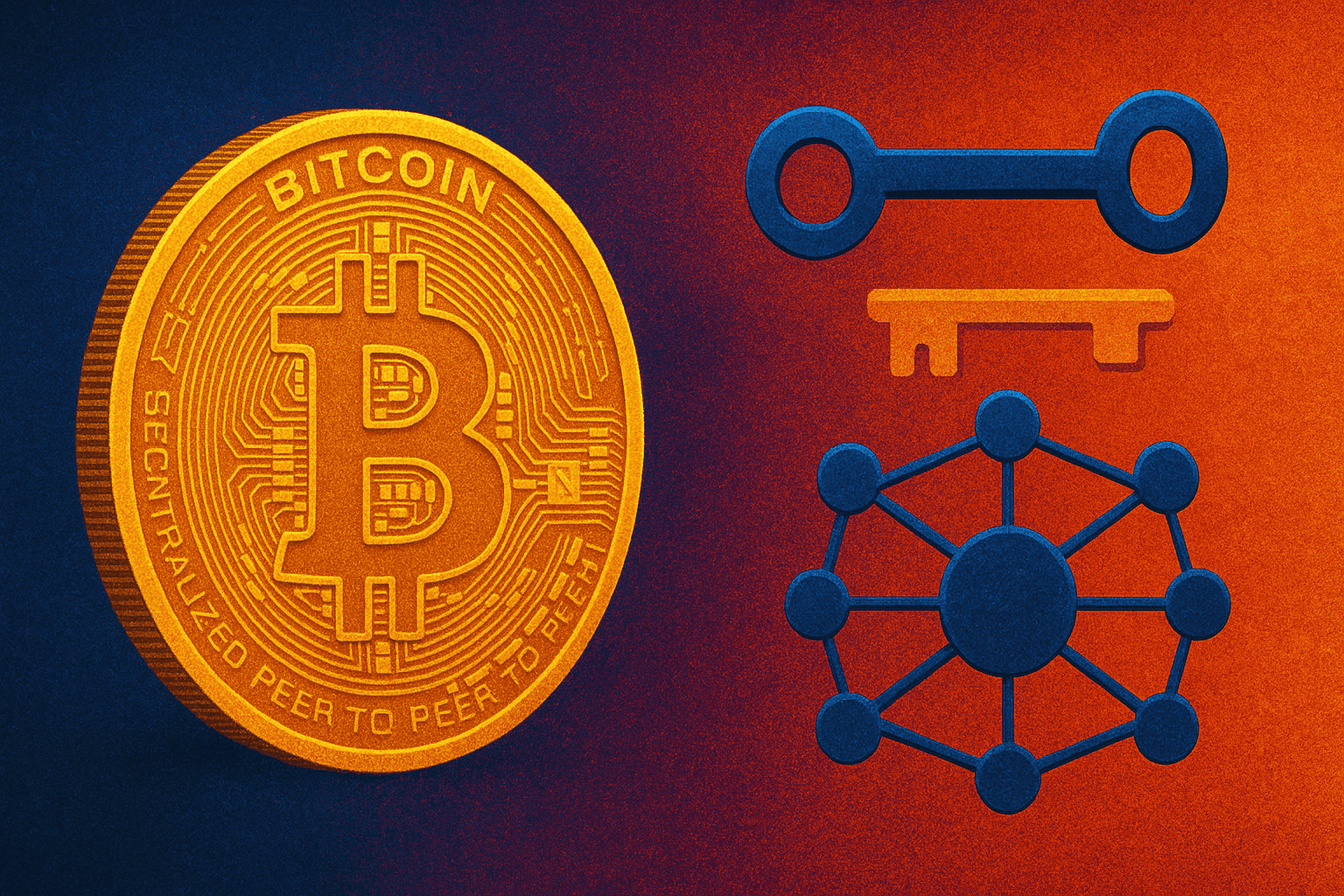Major companies like Microsoft have already made Bitcoin part of their payment systems because of its superior security features. Bitcoin transactions typically cost less than 1% compared to credit card fees of 2-4%. They also settle faster and eliminate chargeback risks completely.
Bitcoin could become your safest payment option in 2025. We will examine its security advantages over credit cards and provide practical guidance to implement secure cryptocurrency transactions in your business.
How Credit Card Security Falls Short in 2025

Credit card networks handle billions in daily transactions, yet their centralized structure makes them attractive to cybercriminals. Financial institutions faced an average breach cost of USD 6.08 million in 2024, showing a worrying upward trend.
Data breaches and centralized vulnerabilities
Credit card vulnerabilities have reached a critical point, with cybercriminals compromising about 80% of all cards in circulation. Financial institutions have become prime targets because they hold valuable data, which makes them suffer more attacks than other sectors. Slim CD’s payment gateway breach serves as a stark example that exposed 1.7 million people’s credit card details between 2023 and 2024.
The rising costs of credit card fraud
Credit card fraud’s financial toll keeps climbing steadily. Global card fraud losses rose to USD 33.83 billion in 2023. The United States carries an outsized share of this burden. It accounts for 42% of worldwide fraud losses while representing only a quarter of global card spending.
Experts predict worldwide payment card fraud losses will hit USD 403.88 billion over the next decade. Merchants face a steep cost multiplier – they pay USD 3.75 in associated costs for every USD 1.00 lost to online fraud.
Identity theft risks in traditional payment systems
Traditional payment systems remain easy targets for sophisticated identity theft schemes. Criminals now steal without physical card access in 92% of unauthorized transactions. They use methods like:
- Phishing attacks through deceptive emails and text messages
- Skimming devices at payment terminals
- RFID signal interception from contactless cards
- Malware infections targeting payment data
- Exploitation of retailer data breaches
Cardholders make themselves vulnerable by taking risks – 84% practice at least one behavior that exposes them to fraud. Credit card companies use monitoring systems, but their networks’ centralized nature means breaches often affect millions of users at once. Four out of five American adults who faced credit card fraud reported multiple incidents, which highlights how these security failures keep happening.
Bitcoin’s Core Security Advantages Explained
Bitcoin’s strong security architecture relies on three fundamental pillars that make it better than traditional payment systems. Let’s get into these core advantages that keep your transactions safe.
Blockchain technology and immutable transactions
Bitcoin’s security comes from its immutable blockchain where no one can alter or falsify recorded transactions. Each block connects to the previous one through cryptographic hashing and creates an unbreakable chain of transaction history. Anyone trying to modify a single transaction would need to change all subsequent blocks. This makes fraudulent changes computationally impossible.
Public key cryptography: How it protects your identity
Bitcoin uses sophisticated public key cryptography to secure transactions and protect user identities. The system creates two keys: a public key to receive funds and a private key to authorize transactions. Bitcoin transactions go through five verification steps:
- Key generation by each participant
- Exchange of public keys
- Data encryption
- Transmission of encrypted information
- Decryption using private keys
This dual-key system will give a rightful owner exclusive access to transfer funds, while the private key stays confidential yet mathematically linked to the public key.
Decentralization: Eliminating single points of failure
Bitcoin runs on a decentralized network where thousands of nodes independently verify transactions, unlike traditional payment systems. No single entity can control or manipulate the network. The system stays reliable even if multiple nodes fail because each node keeps a complete copy of the transaction ledger.
The decentralized structure brings several key benefits:
- Better resistance to cyber attacks
- More reliable system performance
- Clearer transaction visibility
- Lower risk of data tampering
The network must reach consensus before adding new transactions, which makes unauthorized changes virtually impossible. This distributed validation removes the weaknesses found in centralized systems where a single breach can expose millions of users’ data.
These three pillars – immutable records, cryptographic protection, and decentralized validation – help Bitcoin create a payment system that outperforms traditional financial security measures. More businesses now see these advantages, and accepting bitcoin payments becomes a strategic necessity to boost transaction security.
How to Accept Bitcoin Payments Securely

Bitcoin payments need proper security measures to work well. Here’s what you need to know to keep your cryptocurrency transactions safe.
Setting up a secure Bitcoin wallet
You should pick between hot wallets for everyday use and cold storage for bigger amounts. Companies that handle large volumes can benefit from hardware wallets that support multi-signature features from different vendors. Your wallet needs a strong password with letters, numbers, and punctuation marks – make it at least 16 characters long.
Choosing the right payment processor
The best payment processors support multiple cryptocurrencies and can convert to fiat money right away. Top processors take about 1% per transaction and work in 38 countries with different currencies. Look for these features:
- Easy deployment with plugins
- Quick access to tech support
- Solid risk compliance systems
- Works with your current POS setup
Implementing verification protocols
Your verification process should start with multi-signature approval from signers in different locations. You’ll need spending limits and waiting periods for big transactions. Bitcoin’s Payment Protocol (BIP70) adds extra security by checking merchant messages and making payments more accurate.
Training staff on Bitcoin security best practices
Your training program should cover:
- Regular security checks on developer computers
- Ways to spot and avoid phishing
- Private key management
- Cold storage procedures
The team must know that Bitcoin transactions can’t be reversed, unlike regular bank transfers. Strong multifactor authentication is a must, but skip SMS-based tokens because they’re vulnerable to SIM swapping. These security steps help businesses reduce risks while getting the most out of Bitcoin payments.
Real-World Security Comparison: Bitcoin vs. Credit Cards

Here’s how Bitcoin’s security features stack up against traditional credit card systems in ground scenarios.
Transaction security: Chargebacks vs. irreversible payments
Credit card fraud costs the global economy around USD 30 billion annually. Projections suggest this number will reach USD 40 billion by 2026. Merchants face substantial challenges and lose an average of USD 3.75 for every USD 1.00 lost to fraud. Bitcoin transactions offer a different approach – once confirmed, they stay permanent and irreversible. This immutability eliminates chargeback fraud, which grows by over 20% each year.
Personal data protection differences
Traditional credit card payments make sensitive information visible to multiple parties – merchants, banks, and payment processors. Customer’s personal details become vulnerable to potential breaches the moment they swipe their card. Bitcoin transactions work differently and need no personal information disclosure. The blockchain only records transaction amounts and wallet addresses. Users maintain their privacy through pseudonymous operations.
International payment security considerations
Traditional cross-border wire payments often take days to clear with fees reaching up to 10%. These delays create more security vulnerabilities as transactions move through multiple intermediaries. Bitcoin transactions complete within minutes, whatever the geographical boundaries.
The key differences in security implementation include:
- Network Structure: Credit cards use centralized networks where a single breach can compromise millions of accounts. Bitcoin’s decentralized architecture spreads security across thousands of nodes and removes single points of failure.
- Transaction Verification: Credit card systems rely on third-party authorization that exposes data to potential interception. Bitcoin uses cryptographic proof-of-work where network participants verify each transaction independently.
- Data Storage: Credit card companies keep customer information in centralized databases that attract cybercriminals. Bitcoin’s blockchain records only public keys and transaction amounts, which substantially reduces data theft risks.
So, the summary
Bitcoin offers a much safer way to pay than credit cards, and there’s plenty of proof from real-life applications to back this up. Credit card networks keep losing money to fraud, with losses expected to hit $403.88 billion in the next ten years. Bitcoin’s reliable security design solves these problems through three strengths: blockchain technology that can’t be changed, advanced public key cryptography, and validation that doesn’t depend on any central authority.
Big players like Microsoft see these benefits clearly. They now accept Bitcoin payments to cut costs and stop worrying about chargebacks. Their success shows how other businesses can use Bitcoin’s improved security while they run their operations smoothly.
Businesses need to plan carefully when they start accepting Bitcoin payments. Good wallet security, dependable payment processors, and proper team training build a strong foundation for crypto transactions. The move might look tough at first, but fewer fraud risks and better data protection make it worth the effort.
Cybercrime keeps changing its tactics. Bitcoin’s security advantages matter more than ever. The system protects personal information and keeps transactions secure. This makes it an excellent payment choice for businesses that think ahead and customers who care about their security.

